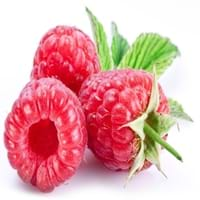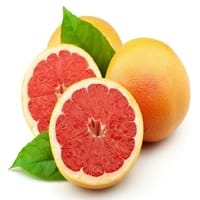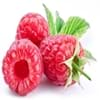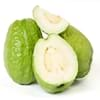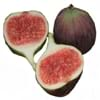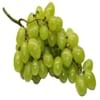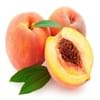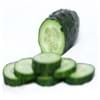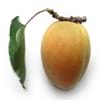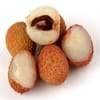Health Benefits
Cancer prevention, Heart care, Prevents macular degeneration, Reduces blood circulation problems
Arthritis prevention, Asthma treatment, Cancer prevention, Kidney stone treatment, Liver health
General Benefits
Anti-inflammatory properties, Controls blood sugar levels, Digestive aid, Eye care, Helps in weight loss
Anti oxidant properties, Boosts immune system, Cures cough, Eye care, Fights against infections, Helps in weight loss, Improves eye vision, Maintains healthy cholesterol level, Treatment of common cold
Skin Benefits
Anti-aging benefits, Brightens and lightens complexion
Anti-aging benefits, Brightens and lightens complexion, Reduces wrinkles, Treatment of dark spots
Hair Benefits
Acts as moisturizer, Regulates hair growth, Shiny hair
Prevents hair loss, Protects hair, Regulates hair growth, Treatment of dandruff
Allergy Symptoms
Breathing difficulty, Eczema, Hives, Itching, Nasal congestion, Runny nose, Sneezing, Watery eyes, Wheezing
Abdominal pains, Decrease in blood pressure, Diarrhea, Dizziness, Eczema, Hives, Lightheadedness, Nausea, Runny nose, Swelling of mouth, tongue or lips, Vomiting
Side Effects
Allergic reaction
Allergic reaction
Best Time to Eat
Best if taken as a breakfast (or empty stomach), As a snack in the late afternoon, Don't eat after meal, Morning time (before lunch)
As a snack in the late afternoon, Don't consume at night and before bed, Don't eat after meal, Morning time (before lunch), Strictly avoid empty stomach
Vitamin B5 (Pantothenic Acid)
Vitamin C (Ascorbic Acid)
Vitamin K (Phyllochinone)
Calories in Fresh Fruit with Peel
Not Available
Calories in Fresh Fruit without Peel
Not Available
Calories in Frozen Form
Not Available
Calories in Dried Form
Not Available
Calories in Canned Form
Not Available
Type
Berry
Citrus, Tree fruit
Season
Summer
All seasons
Varieties
Amity, August Red, Boyne, Canby, Caroline, Comet, Dinkum, Dorman Red, Latham, Meeker, Black Hawk, Hayda, Lauren, Meeker and Latham
Rio Star, Flame, Thompson and Star Ruby
Color
Black, Purple, Red, Yellow
Pink, Red
Origin
Europe, North Asia
Barbados
Soil Type
Sandy loam
Loam, Well-drained
Climatic Conditions
Cold
Humid, Warm
Facts about
- There are more than 200 varieties of raspberries.
- In USA, 90% of the raspberries are grown in Washington, California and Oregon.
- They do not ripe after they are picked.
- A raspberry contain 100 to 120 seeds.
- Grapefruit is used to protect wooden tools due to its anti-fungal properties.
- It grows in clusters as grapes & hence called as grapefruit.
- This fruit tastes delicious when paired with fish, e.g. in fish salads.
Top Producer
Russia
China
Other Countries
Azerbaijan, Canada, Mexico, Poland, Serbia, Spain, Ukraine, United Kingdom, United States of America
Argentina, India, Israel, Mexico, South Africa, Sudan, Thailand, Turkey, United States of America
Top Importer
United States of America
Japan
Top Exporter
Poland
United States of America
Botanical Name
Rubus Idaeus
Citrus paradisi
Synonym
Not Available
Not Available
Subkingdom
Tracheobionta
Tracheobionta
Division
Magnoliophyta
Magnoliophyta
Class
Magnoliopsida
Magnoliopsida
Species
R. idaeus
C. × paradisi
Generic Group
Rose
Citrus fruit
Compare Raspberry and Pink Grapefruit
It is important compare Raspberry and Pink Grapefruit as both the fruits have a different nutritional value. Their comparison can be done on the basis of their vitamin and mineral content, calories, benefits as well as characteristics, making it easier for us to choose the best fruit for our diet. Their general health benefits are as follows:
Raspberry Benefits: anti-inflammatory properties, controls blood sugar levels, digestive aid, eye care and helps in weight loss.
Pink Grapefruit Benefits: anti oxidant properties, boosts immune system, cures cough, eye care, fights against infections, helps in weight loss, improves eye vision, maintains healthy cholesterol level and treatment of common cold.
Fruits are also used as a remedy for various hair problems. The hair benefits of Raspberry are: acts as moisturizer, regulates hair growth and shiny hair and hair benefits of Pink Grapefruit are: prevents hair loss, protects hair, regulates hair growth and treatment of dandruff. Some fruits are known to cause allergic reactions. The allergy symptoms of first fruit are: breathing difficulty, eczema, hives, itching, nasal congestion, runny nose, sneezing, watery eyes and wheezing and the symptoms of second fruit are: abdominal pains, decrease in blood pressure, diarrhea, dizziness, eczema, hives, lightheadedness, nausea, runny nose, swelling of mouth tongue or lips and vomiting. Get sorted Raspberry vs Pink Grapefruit comparison with the help of fruit comparison tool by fruitvs.com.
